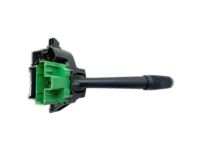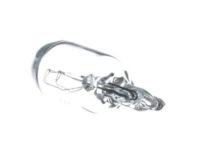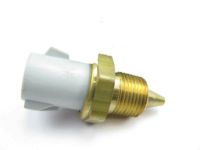

Why choose FordPartsGiant
- Devoted Service
At FordPartsGiant.com, we strive to make customer satisfaction our #1 goal by providing dedicated customer service. Our core values of success continue to demonstrate our loyalty by building dedicated relationships with all of our current and future customers. We are always ready to assist you with the slightest detail about your Ford Thunderbird parts and accessories.
- Reasonable Prices
We are the right online source for discounted prices on OEM Ford Thunderbird parts and accessories. Not everyone has the money to buy their vehicle quality parts, here at FordPartsGiant.com we make it economical to buy genuine Ford Thunderbird parts without sacrificing the quality or hurting your wallet.
- Swift Delivery
FordPartsGiant.com has centrally located distribution centers all across the United States. This gives you quick access to our discounted Ford Thunderbird parts when you need them. We offer our customers the convenience of having parts delivered straight to their front door. We are committed to having your Ford Thunderbird up and running in just a couple of days.
Popular Genuine Ford Thunderbird Parts
- Engine Parts View More >
- Chassis Parts View More >
- Electrical Parts View More >
- Body And Paint Parts View More >
- Lamps & Wiring Parts View More >
- Wheels & Brakes Parts View More >
- Fuel System & Manifolds Parts View More >
- Speedometer, Bumpers, Mirrors & Wipers Parts View More >
- Automatic Transmission Parts View More >
- Transmission Parts View More >
- Radiator & Grill Parts View More >
- Frame, Exhaust System, Spring & Stabilizer Parts View More >
Shop Genuine Ford Thunderbird Parts with FordPartsGiant.com
The Ford Thunderbird (or the T-Bird) serves as a personal luxury car produced by Ford from the model years 1955 to 1997 and 2002 to 2005. The equipment for a passenger was a wide range of choices including a four-seat hardtop coupe, four-seat convertible, five-seat convertible and hardtop, four-door pillared hardtop sedan, six-passenger hardtop coupe, and five-passenger pillared coupe, depending on generations, and the model returned to a two-seat convertible for its final version. Its simple design, with its round headlights and oval center grille, made the Thunderbird particularly distinctive, creating a unique element not found in other cars. The tenth generation of Ford Thunderbird was released and featured two different versions of Ford's 3.8 L Essex V6, accompanied by an AOD four-speed automatic transmission. The eleventh generation was a return of the series, heading back to its origin. However, its interior was borrowed from other models including Lincoln LS. The engine was still V8, producing the power of 252 hp (188 kW) and 267 lb-ft (362 Nm) of torque.
Ford Thunderbird, a personal luxury car, is known for its high performance and excellence. However, with increased mileage, issues can arise, the most common being suspension system failure and braking system malfunctions. Drivers have reported a progressively loose steering wheel and clunking or rattling noises emanating from the tire area, making handling challenging. To remedy this, it's advisable to inspect the sway bar link during tire replacement or carry out a comprehensive suspension examination. Additionally, complaints about noisy brakes, increasingly pulsating brake pedals, and poor brake response have been common. In such situations, replacing the brake pads and thoroughly checking the braking system is crucial. Other areas requiring attention are the electrical components such as the power window motor, cruise control switch, and alternator pulley. Furthermore, for ease in entering and exiting the vehicle, maintaining the front and rear door strikers is also vital.
To achieve maximum perfection, OEM parts are manufactured and tested in accordance with Ford's official factory standards. If you're in the market for new parts, like Steering System & Drive line & Suspension, Fenders & Hood for your Ford Thunderbird, your top choice should be OEM parts, such as Manual Transmission. Even if you're on a tight budget, we've got you covered. Our genuine Thunderbird parts are not only backed by the manufacturer's warranty, but are also offered at the most competitive prices. Plus, we enhance your shopping experience with our hassle-free return policy and super-fast delivery service.
Ford Thunderbird Parts Questions & Answers
- Q: How to remove and install a Turn Signal Switch on Ford Thunderbird?A: First of all, take off the negative cable from the battery. Then, the steering column cover is removed. The Turn Signal Switch should be pulled out by removing the two retaining bolts and disconnecting it from the connector to withdraw the switch assembly off the steering column. A small screwdriver can be used to release the latch and unplug the electrical connector. Then, you should plug in the electrical connector, put the switch in position and insert screws. Make sure that you tighten bolts well. After that, one must install a steering column cover. You need to connect a negative battery cable again.
- Q: How do I replace a headlight bulb on Ford Thunderbird?A: First of all, open the hood and disconnect the negative cable from the battery. Proceed to reach behind the headlight assembly and then unplug the electrical connector, employing a screwdriver to hold the clip out of the way. Also, you will be required to grasp the bulb holder and turn it counterclockwise to remove it. Lifting the holder assembly out is necessary to access the bulb. Push in and rotate bulb counterclockwise to remove it. To install it into your holder rotate it clockwise. Have your bulb holder installed in a headlight assembly.
- Q: How to check and replace the Coolant Temperature Sensor on Ford Thunderbird?A: This process pertains to standard analog instruments. Begin by examining the fuses if the coolant temperature gauge or light doesn't function. For an excessively high temperature indication, consider troubleshooting procedures. If the temperature gauge or light signals "Hot" soon after the engine starts, disconnect the wire at the coolant temperature sensor. Replace the sending unit if the gauge reading falls or the light turns off. High readings might indicate a shorted wire or a malfunctioning gauge. If the coolant temperature gauge doesn't register post engine warming, turn off the engine and disconnect the wire at the sending unit. Use a jumper wire to connect it to a clean engine ground. If the gauge now displays "Hot", replace the sending unit. If the gauge remains unresponsive, an open circuit or a defective gauge might be the cause. For replacement, initiate by removing the radiator cap to relieve pressure. Disconnect the electrical connector from the sending unit, and wrap Teflon tape around the threads of the new sending unit. Swiftly replace the old sending unit with the new one to avoid coolant loss. Securely tighten the sending unit and reconnect the wiring harness. Refill the cooling system and monitor for leaks and accurate gauge operation.



















































